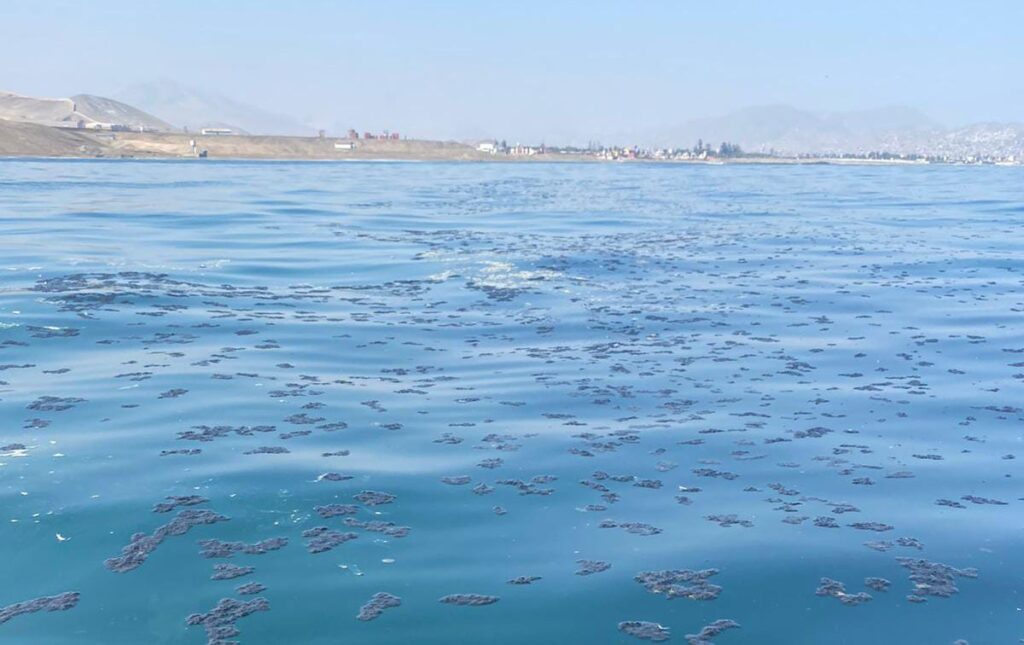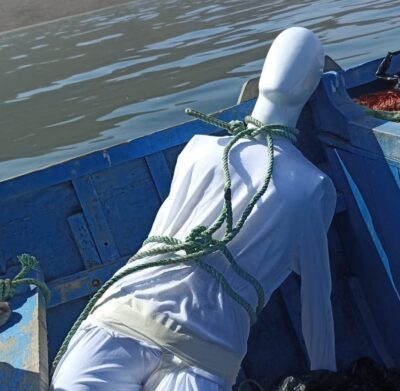With a stunt mannequin Oceana Peru confirms that the Peruvian sea is still contaminated by the Repsol spill
This July 15 marked six months since the worst ecological disaster that has ever occurred in the Peruvian sea.
julio 21, 2022
Ubicación: Perú
Contacto:

The consequences of the oil spill that occurred on January 15 of this year in the Ventanilla sea continue to affect the marine ecosystem and the people who depend on it. Although the company REPSOL has assured that the cleanup of the oil spill is almost finished, a video made by OCEANA shows that the bottom and the surface of the sea are still contaminated by the oil.
To check the current situation of the sea, with the help of Héctor Semillan, a diver from Ancón, an Oceana audiovisual team went to Pasamayo in Lima, where many dark spots showed that the contamination persists. It was necessary to dive into the depths of the sea to check the situation. This task, impossible to be carried out by a person due to the serious consequences that the crude oil would have on the human body, had to be performed by a mannequin. The result was what we all suspected: six months after the worst oil spill in the Peruvian sea, REPSOL’s actions have been insufficient, and the consequences could last for many more years.

However, the serious environmental impact of this disaster is not the only tragedy generated by the inaction of the Spanish company and the negligence of the Peruvian State. To date, the fishermen affected have only received 3 of the 6 compensations REPSOL promised them. This adds to the uncertainty of not knowing when they will be able to return to fishing and diving in the sea, which, in addition to their source of work, is a fundamental part of their lives.
The Fact
- Last January 15, some 11,900 barrels of oil fell off the Peruvian coast, some 30 kilometers north of Lima, the capital. The spill occurred while the Italian-flagged tanker ‘Mare Doricum’ was unloading crude oil from the Spanish oil company Repsol at the La Pampilla refinery in Ventanilla.
- The oil spill affected tens of thousands of Peruvians and forced the closure of beaches in the middle of summer. This left fishermen, restaurant owners and employees, people who rented umbrellas on the beaches and those who sold food to bathers without income.
